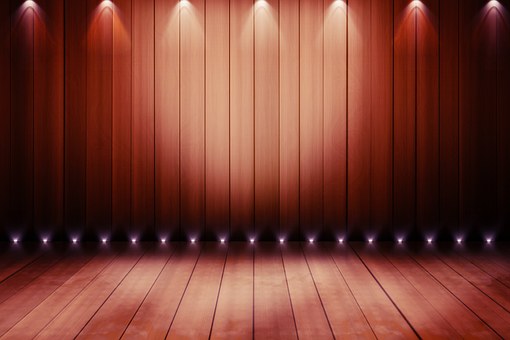Burton: Politics Isn’t Making Comedy Worse — It’s Bad Commentary

(Courtesy Pixabay)
September 4, 2020
Comedy is a well-established institution within the entertainment industry. From Vaudeville comedy acts and stand-up, all the way down to the advent of online comedy such as podcasts and streaming services, comedy has undergone numerous stylistic and structural changes throughout its history. Despite all these changes, comedy remains a popular entertainment genre. But that doesn’t make the art form immune from criticism.
Among some of the most frequent and recent criticisms are that “comedy has become too political” in the age of Trump. A wide variety of publications, from The Economist down to former Late-Night host Jay Leno, have criticized how comedy and politics have become too intertwined. Experts are not the only ones that share these sentiments. A Morning Consult survey on late-night shows suggests that a majority of Republicans dislike the politicization in late-night shows. While many think that politics has negatively affected comedy, it isn’t politics that’s making comedy worse, it’s bad commentary.
The Age-Old Trend
Politics did not suddenly infiltrate the comedy world with the election of Donald Trump. Politics and comedy have had a close relationship for centuries. Long before television and radio, writers and commentators utilized print and performance to advance a political moral. Aristophanes wrote plays critiquing Athenian society. Centuries later, political cartoons critiqued monarchs and revolutions on print publications throughout Europe and the American colonies. It is a form still being used today, not only in the form of comics on high-brow publications but also memes on Reddit.
Following the invention of television and radio, creators did not shy away from addressing politically controversial topics. Steve Allen, the first-ever host of the long-running Tonight Show, frequently discussed politics and invited political guests. Today, politics are ever more present in comedy. Saturday Night Live, Stephen Colbert, Seth Meyers, John Oliver and Trevor Noah are some current shows notable for their political sketches and commentary. Politics and comedy have a long history, so why are so many complaints about it now?
Parody over satire
It was only natural for comedy shows to riff on Donald Trump once he began to take the spotlight. His mannerisms, speech and beliefs make for an easy caricature and material. Trump’s over-the-top public persona also introduces the problem of over-relying on parody instead of teaching a lesson through satire. Parody and satire can sometimes seem similar, but there are some key differences. Whereas parody is the technique of imitating and exaggerating a character for derision, satire aims for commentary through comedic means, like parody.
Take for example Alec Baldwin’s SNL and Stephen Colbert’s cartoon portrayal of Donald Trump. Both these portrayals are uncanny, exaggerated and funny, but there is an overreliance to focus on his character traits. It makes for good parody, but weak satire. Consider SNL’s 2008 VP Debate sketch, starring Tina Fey’s famous portrayal of Sarah Palin. This sketch used extensive parody for the benefit of the commentary, which then helps express the satirical point that high-profile politicians can also flounder in the public eye.
When I watch newer sketches, the only sense of commentary I feel I’m receiving is that “Trump is a cheesehead and that is funny.” His policies and beliefs, a potential treasure trove of good material, are only just punchlines for the caricature instead of the main focus. Parody is funny enough, but for many others (including myself), they are finding tired and uncreative Trump parodies less and less funny as time goes on. In 2017, the politically slanted Late Show with Stephen Colbert beat out the politically neutral Tonight Night with Jimmy Fallon in viewership. By November of last year, Colbert and Fallon were essentially on equal ground.
Changing the Approach
How do writers change their approach? How can they make impactful statements on politics while being funny? It could be a change in format and looking toward the past. The Colbert Report and The Daily Show with Jon Stewart are seminal programs that inspired the now very popular John Oliver and Trevor Noah. Instead of focusing on sketches, they do perform news commentary and interviews with a dash of sarcasm and wit. The format also allows them to focus on specific issues (rather than politics at large), such as mail-in-voting, foreign policy and the police.
Satirical sketches are relevant as well. SNL’s Black Jeopardy with Tom Hanks is a brilliantly observed sketch on the similarities and differences of Black and white working-class Americans without ever condescendingly dismissing either side. This satirical style is also very popular: Black Jeopardy has amassed over 55 million views. HBO’s Veep is another example of spot-on commentary without mention of any political party or ideology. Rather, it points to the folly of the political and public relations process of Washington. Insiders have praised the show as being more realistic than even some political dramas. All of these examples have one thread in common: they all make substantive commentary that challenges their audience to ponder and reevaluate their beliefs.
I have been a fan of comedy for years and while I still do enjoy a good sketch and or late night remote, I can’t help but feel that a lot of potential isn’t being fulfilled. Writers and comedians should be creative on how they approach politics. It isn’t something to simply point at and laugh about, but a topic worthy of criticism.







